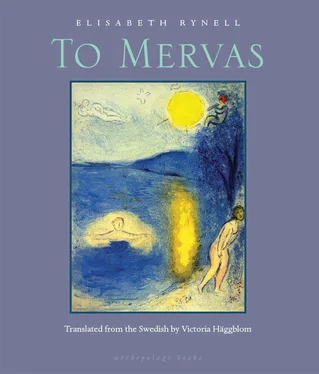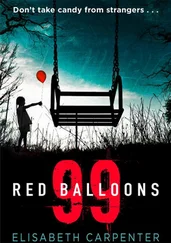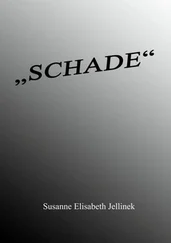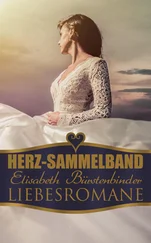Marta listened to what the man was saying as if under a spell. The entire time, he spoke in a very loud voice. It was almost as if he were yelling. Or as if he were making a speech. And he had a thick accent; he didn’t say “bear” but “beear” or even “bearn.” She couldn’t stop watching him. There was so much life in this man, more than she could recall ever having seen in anyone.
Yet he was older than she was, probably almost seventy.
“Yeah, well,” he said, straightening up again. “Now that you’ve ended up here in Deep Tarn, you might as well step out of the car and have some coffee. You drink coffee, don’t you?”
“Certainly. Thank you,” Marta said.
She glanced at the dog and the man smiled a little again.
“Just come on out,” he said. “No need to be scared of Tasso, not at all. He’s a damned good hunting dog, that is all. And he’s always on alert!”
Marta had to support herself against the car as soon as she stepped out. Her numb legs felt dead underneath her; she thought they wouldn’t carry her.
“I’ve been driving all day,” she said apologetically.
He drew in some air between his front teeth. Then he took her hand.
“Arnold,” he said.
“Marta,” she answered.
Perhaps it was for real, she wasn’t quite sure, but she followed close behind the man with the shining eyes. They were heading for the residence about fifty yards away. The present moment suddenly had a tinge of fragility. She couldn’t rely on it; it seemed that at any time it could spill onto the ground where she walked and disappear forever. Nor did she know if what she saw was entirely clear, if she saw it in the right context. The little courtyard she now moved across — didn’t she recognize it from a dream, from a very different kind of dream? She shivered. She’d said only yes, she did drink coffee, and that wasn’t really very much to say. Most people drink coffee, if only to be polite. She supposed it was possible that anyone could step into a house and get the vague feeling they’d been there before, perhaps in a dream or through a book, or in the distant past of childhood. The man ahead of her walked with such determination, with long, easy steps. He didn’t even turn around to make sure she was still there; he knew she was. His entire being watched with those luminous eyes and he didn’t doubt for a moment that she wanted to come and have coffee with him. Marta got it into her head that she had somehow taken a step in the wrong direction, that she’d taken one step to the side and slid into something she did not recognize, one tiny faux pas that had brought her into other worlds, other orders. It struck her that this had already begun that day in the library back home, when she found Mervas in the atlas. That’s when the first false step took place. It was impossible to change that now, to undo what was done. This is what everything had turned into; it wasn’t what she’d previously decided but where she helplessly found herself. Here. She was here; she was actually following the man up ahead. She knew she was here, a strangely new feeling.
Just as she placed her foot on the landing by the front door she noticed the birdsong, and it was decidedly real. It rose from every treetop and every shrub, from the sky and from the ground so that she was closely surrounded by tones, submerged in a bath of bird voices. Only then did the man turn around to look at her, making sure she was there. He then turned his gaze to the vista below the house, toward the mountain curling its back away from them toward the sky, which was bright even though it was evening.
“Yes,” was all he said as he looked at her again.
After this, he slid through the door, which was half-open, and she followed him uncertainly. Two steps through the vestibule, the kitchen was on the left, and its door was open.
“We’ve got a visitor,” the man called with a loud voice as he stepped over the threshold.
Relieved, Marta discovered a woman standing by the stove. She was short and had frizzy gray hair and wore a greenish wool sweater that went down to her knees.
“Well, I can see that,” the woman said in a soft voice. She smiled a little at Marta. “I saw you coming,” she said, nodding at one of the three windows. Marta’s car was out there, left in the middle of the road as if it were still on its way to the house.
The woman poured some coffee onto the lid of the pot, and then poured it back.
“Sit down now,” she said. “I’m Lilldolly of Deep Tarn and we don’t have guests here very often.”
She had set the table with two cups and saucers, bread, butter, and cheese. She poured the steaming hot coffee and returned to the stove.
“Well, I’ll have my coffee over here,” she said. “I share neither table nor bed with Arnold over there, even though I’m married to him,” she added with a wink, and chuckled.
“No, that’s right,” Arnold muttered. “One’s been shown to the gate, or whatever it is people say.”
He gave Marta a mischievous glance and slurped some of his coffee.
“Now, have some cheese and bread,” Lilldolly said from over by the stove. “And drink your coffee.”
After this, silence settled on the kitchen. Marta spread some butter on a piece of the soft bread and cut into the cheese, which looked homemade and had a tart, sharp smell of milk and stable. The dog was curled up in an old armchair in the corner and was looking at them with its head between its paws. Sometimes Marta looked at the dog and sometimes out the window. She didn’t dare look at Arnold or Lilldolly. Everything was too quiet; it felt as if they all were naked, as if they didn’t have as much as a rag to cover themselves with. No words could protect them. It felt as if time were holding its breath and soon would implode from the effort, from the pressure. But she couldn’t break the silence herself; she didn’t trust her voice to carry itself. She was also afraid her voice would burst through the room like something foreign, something outside herself.
“You know, Lilldolly, she was on her way to Mervas, this woman, so I told her it was lucky she had come to Deep Tarn instead.”
Arnold broke the silence as if it had never existed. As always when he was speaking, the words rang out. It was beautiful, Marta thought. She saw the landscape and the heavens when she heard his voice, it belonged out there in the sea of air, it moved easily through the vast and the spacious.
Lilldolly’s voice was low and quiet.
“Was there something you needed to do in Mervas?” she asked softly, and Marta squirmed under her gaze for a while before she figured out what to say.
“No, nothing in particular. I just wanted to see it.”
“I see. Well, everything’s gone up there,” Lilldolly said, without taking her eyes off Marta. “But in the old days it was like going to town when we went to Mervas, there were lots of people, an open-air dance floor and a movie theater and everything. And barracks full of bachelors!”
She laughed her funny little giggle and shot Arnold a playful glance.
“But now there’s not a house left up there. Not a single one. That’s right. And it’s quiet.” Lilldolly bent down to get a stick of firewood and put it in the stove.
“All that’s left up there is blueberries,” Arnold added. “I told her already, nothing but blueberries and bears.”
What about Kosti? Marta wondered. Is Kosti still there?
“They just dismantled the houses and took them away on big trucks. They left the cellars behind, of course, couldn’t remove the cellars, so you can see where everything used to be, where the houses were placed along the streets. The cast concrete stairs and the foundations, those’re still there.”
Читать дальше












